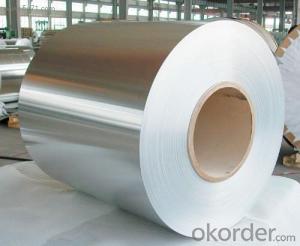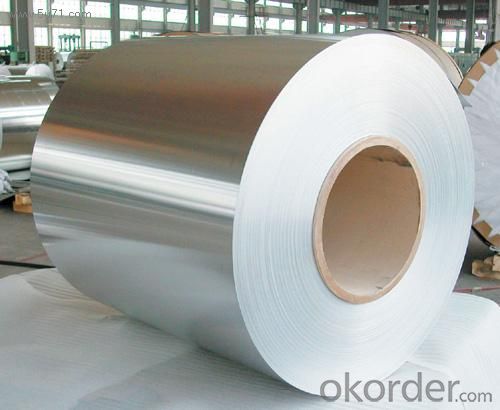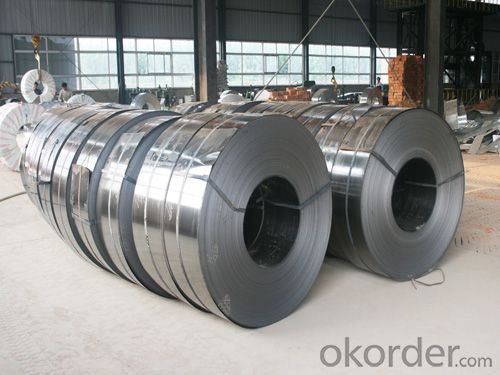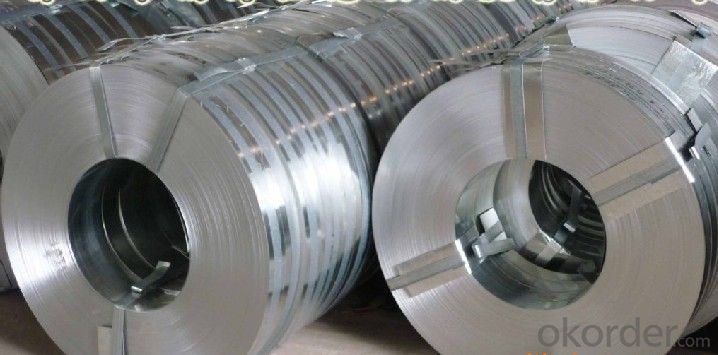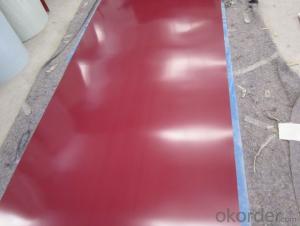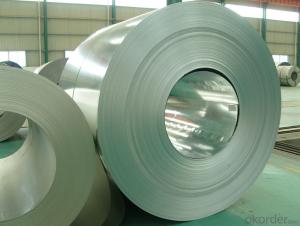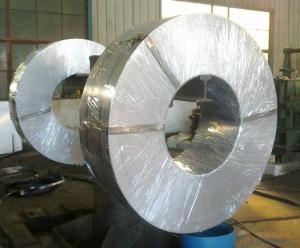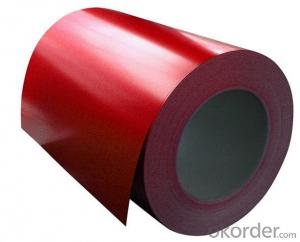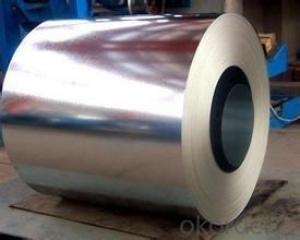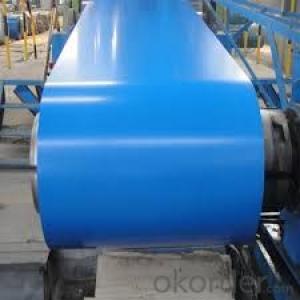Hot-dip Zinc Coating Steel --Excellent Process Capability
- Loading Port:
- China main port
- Payment Terms:
- TT OR LC
- Min Order Qty:
- 50 m.t.
- Supply Capability:
- 10000 m.t./month
OKorder Service Pledge
OKorder Financial Service
You Might Also Like
Hot-dip Zinc Coating Steel --Excellent Process Capability
1.Hot-dip Zinc Coating Steel --Excellent Process Capability Description:
Hot-dip galvanized steel coils are available with a pure zinc coating through the hot-dip galvanizing process. It offers the economy, strength and formability of steel combined with the corrosion resistance of zinc. The hot-dip process is the process by which steel gets coated in layers of zinc to protect against rust. It is especially useful for countless outdoor and industrial applications. Production of cold formed corrugated sheets and profiles for roofing, cladding, decking, tiles, sandwich walls, rainwater protective systems, air conditioning duct as well as electrical appliances and engineering.
2.Main Features of Hot-dip Zinc Coating Steel --Excellent Process Capability:
• Excellent process capability
• Smooth and flat surface
• Workability, durability
• High strength
3.Hot-Dip Galvanized Steel Sheet Images:
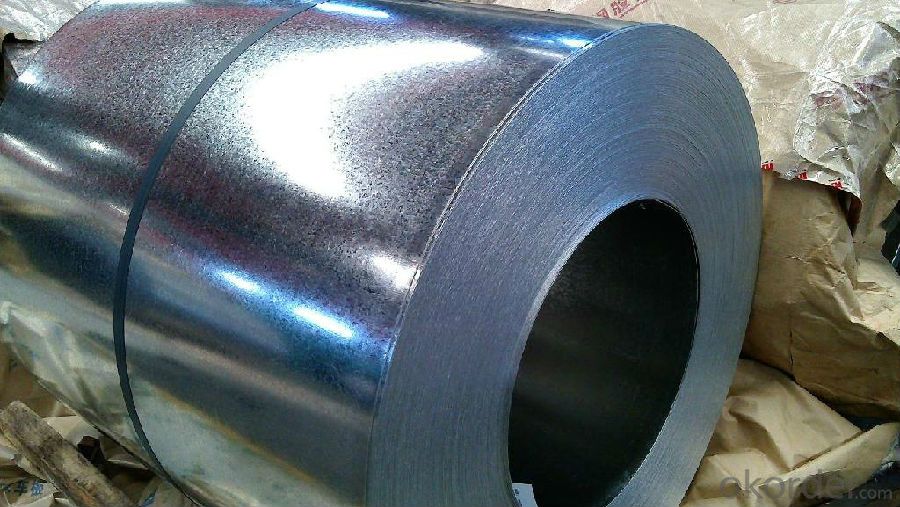
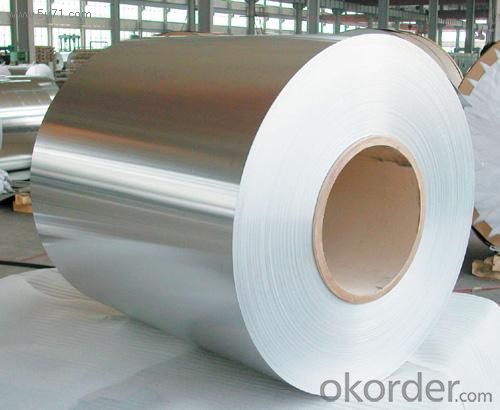
4.Hot-Dip Galvanized Steel Sheet Specification:
Standard: ASTM, JIS,EN
Grade: CS, DX51D+Z,SGCC, SS 230~550,S220GD+Z~S550GD+Z, SGC340~SGC570
Thickness: 0.18mm~5mm
Width: max 2000mm
Coil weight:3-12 MT
Coil ID:508/610mm
Surface structure: zero spangle, regular spangle or minimum spangle
Surface treatment: Chromate treatment, Oiled/dry, skinpassed/non-skinpassed
5.FAQ of Hot-Dip Galvanized Steel Sheet
We have organized several common questions for our clients,may help you sincerely:
1.How to guarantee the quality of the products?
We have established the international advanced quality management system,every link from raw material to final product we have strict quality test;We resolutely put an end to unqualified products flowing into the market.
2. How long can we receive the product after purchase?
Usually within thirty working days after receiving buyer’s advance payment or LC. We will arrange the factory manufacturing as soon as possible. The cargo readiness usually takes 15-30 days, but the shipment will depend on the vessel situation.
- Q: hi to every one I need to konw moer about steel and iron industry (process) thank you in advance for your intresting
- Primary Steel Making first Iron ore Coke Lime stone are mined and then took to the steel plant and put in the top off a blast furnace and sinks down to the bottom off the blast furnace and turns into molten iron. Once this process has been done it is then transferred to a BOS (Basic Oxygen Steel Making) this is then poured from a ladle into the BOS and a Lance is inserted into the BOS and pure oxygen is blown into the BOS for about 30 min and turns into steel.
- Q: Is it possible to have a 25 room Hotel building with Steel structure. Thay is instead of traditional RCC can we have a 25 room hotel constructed using steel construction? Is it economic and how much time will it take to construct the same? Appraximate area would be 5000sq.ft to 10000sqft.
- it is possible...but with the current ever rising cost of steel...it is more expensive than reinforced concrete..... ...one more disadvantage is tat u have to use large I sections for the columns as steel do not take compression as good as concrete... ..tat is why u see..almost all totally steel structures are bridges where tensile strength rules more than compression.
- Q: What would be a better knife one with damascus steel or one without? Why is damascus steel so special other than the look? And why do some people say high carbon steel is better than regular? mainly though I want to know about the damascus. Thanks, max points to best answer.
- It all depends on the steel. There are as many types of Damascus as you want to imagine. The old Damascus swords brought back by the Crusaders were far superior to the blades made in Europe at that time, but they probably wouldn't match up to modern steel in performance. Alas, it has been lost to history as to how they were made. Back to modern times. Damascus can be homogeneous steel with the pattern hammered in (hammered steel) or layered (pattern welded) or any number of variations. I make many blades out of crane cable, the pattern is nice and the strength is superior to all others. Layered damascus, done correctly, can have what is called the Damascus cutting effect (DCE). These knives are rare and expensive. The best layered blades are made of high carbon steels of various alloy content. I just recently finished a low count blade made of L-6 and a file (W-1), these offer exceptional edge holding. Factory blades are often not worth buying unless you like pretty knives. I personally make mine to be used. I could write a book on the subject, but others already have. In the end a knife is as only as good as the heat treating, good steel with a bad heat treat will not perform as well as lower quality steel done properly.
- Q: What are the dimensions of steel coils used in the storage system industry?
- The dimensions of steel coils used in the storage system industry vary depending on the specific requirements of the storage system and the industry it is used in. However, common dimensions for steel coils used in storage systems can range from 0.15mm to 3.5mm in thickness, and from 600mm to 2100mm in width. The length of the coils can also vary, typically ranging from 1000mm to 6000mm.
- Q: What are the different grades of steel used for making coils?
- When making coils, various grades of steel are commonly utilized, depending on specific requirements and applications. Some frequently employed grades are: 1. Mild steel, also referred to as low carbon steel, is often employed for coil production due to its favorable characteristics of formability, weldability, and machinability. It is suitable for diverse applications where strength and durability are not the primary concerns. 2. High carbon steel, which contains elevated carbon levels, offers increased strength and hardness. This grade is commonly used for coils that require high strength and resistance to wear, such as springs and automotive components. 3. Stainless steel, characterized by a high chromium content, exhibits excellent corrosion resistance. Coils made from stainless steel are commonly utilized in applications where resistance to rust and staining is critical, such as kitchen appliances, automotive trim, and medical equipment. 4. Galvanized steel, coated with a layer of zinc, provides exceptional corrosion resistance. Galvanized steel coils find common use in outdoor applications that involve exposure to moisture and other elements, including roofing, fencing, and HVAC ductwork. 5. Electrical steel, specifically designed for electrical applications like transformers, motors, and generators, possesses low impurity levels and is optimized for high magnetic permeability and low core loss. 6. Advanced high-strength steel (AHSS), engineered to offer exceptional strength while maintaining good formability, is frequently employed in the automotive industry. AHSS coils contribute to lightweighting vehicles while ensuring structural integrity and crashworthiness. These examples represent only a fraction of the steel grades employed in coil manufacturing. The choice of a specific grade depends on factors such as the intended application, desired properties, and cost considerations.
- Q: What are the dimensions of steel coils used in the building materials industry?
- The dimensions of steel coils used in the building materials industry can vary depending on the specific requirements of the project. However, common dimensions for steel coils in this industry range from 0.15mm to 3.5mm in thickness and 600mm to 2000mm in width. The length of the coils can also vary, typically ranging from 1000mm to 6000mm.
- Q: How are steel coils transported?
- Steel coils are typically transported using specialized flatbed trucks or railcars. The coils are carefully loaded onto these vehicles and secured using straps or chains to prevent any movement during transit. In some cases, shipping containers are also used to transport steel coils via cargo ships.
- Q: Hello. right now i have been playing electric and acoustic guitar for 6 years. I currently became very interested in learning the pedal steel guitar. I will be teaching myself so is it really hard to learn? Are there a lot of songs online that could give me tabs? Basically im asking if it is worthwhile to spend a lot of money. I dont want it if there are only 3 songs im gona learn. im up for the challenge im just curious how hard it was to learn. thanks for your help.
- The okorder /... Beware of eBay deals unless you know what you're buying. To start, you should get a 10-string single neck with 3 pedals and 4 levers. Some of the student models don't have as many levers and aren't capable of all the changes you need. Stay away from the ShoBud Maverick...you'll outgrow it in a couple of months. Often it makes more sense to buy a used professional model...you'll eventually need one, and they hold their value better than a student model. You'll also need a volume pedal, bar, thumb and finger picks. For now, your guitar amp will be ok. Playing the guitar: There are several tunings and lots of different combinations of levers, but the basic guitar is a 10 string E9 tuning. It's almost an open E but with a few extra notes. The pedals and levers raise and lower the pitch of selected strings. Chord changes are made by moving the bar and pressing pedals and levers. The volume pedal helps you swell and sustain notes. Steel has it's own unique tablature which reflects all these changes. If you have any other questions, feel free to email me or just join the PSG forum and ask there.
- Q: How do steel coils contribute to energy savings in buildings?
- Steel coils contribute to energy savings in buildings in several ways. Firstly, steel coils are often used as part of the insulation system in buildings. The high thermal conductivity of steel allows for efficient heat transfer, ensuring that the building remains well-insulated and energy loss is minimized. Additionally, steel coils are often used for HVAC systems, which play a crucial role in energy efficiency. By using steel coils in these systems, the heat transfer process can be optimized, reducing the energy required to heat or cool the building. Moreover, steel coils are durable and long-lasting, reducing the need for frequent replacements and maintenance, which in turn saves energy and resources. Overall, the use of steel coils in buildings helps to improve energy efficiency and reduce energy consumption, contributing to significant energy savings.
- Q: How are steel coils used in the manufacturing of heat shields?
- Steel coils are used in the manufacturing of heat shields to provide a durable and sturdy base material that can withstand high temperatures. The coils are formed into a specific shape and then coated with heat-resistant materials to create a protective barrier against heat and flames.
Send your message to us
Hot-dip Zinc Coating Steel --Excellent Process Capability
- Loading Port:
- China main port
- Payment Terms:
- TT OR LC
- Min Order Qty:
- 50 m.t.
- Supply Capability:
- 10000 m.t./month
OKorder Service Pledge
OKorder Financial Service
Similar products
Hot products
Hot Searches
Related keywords
